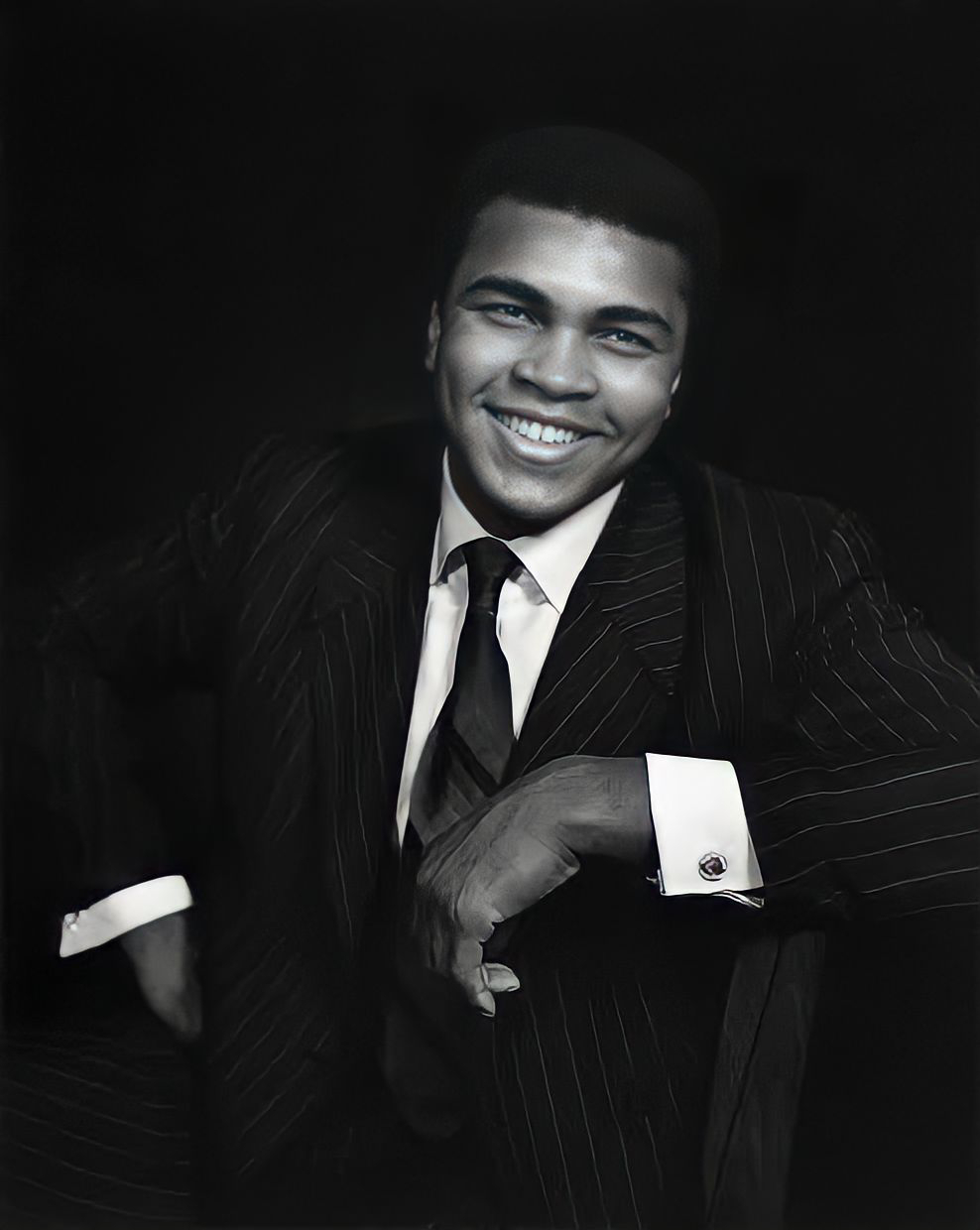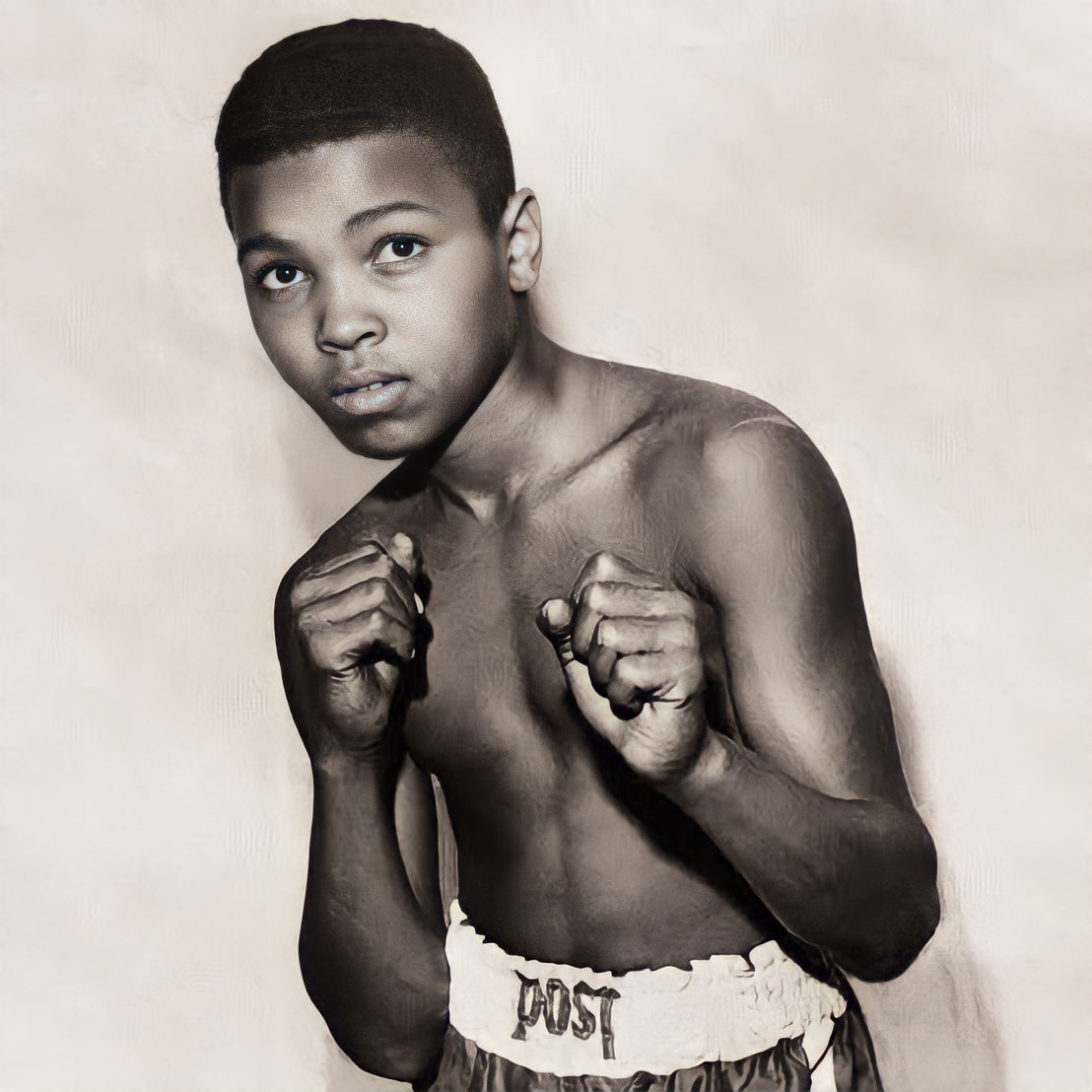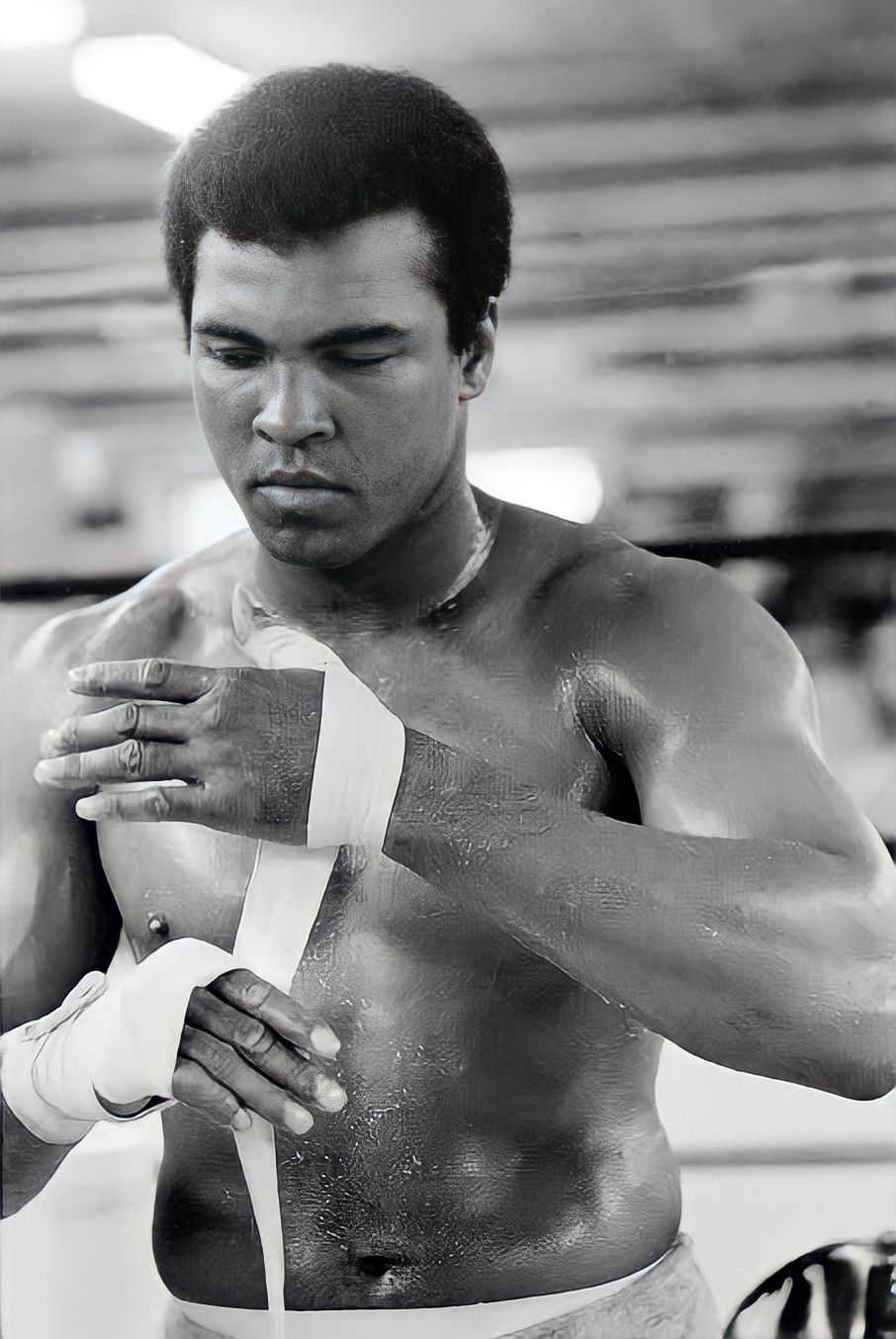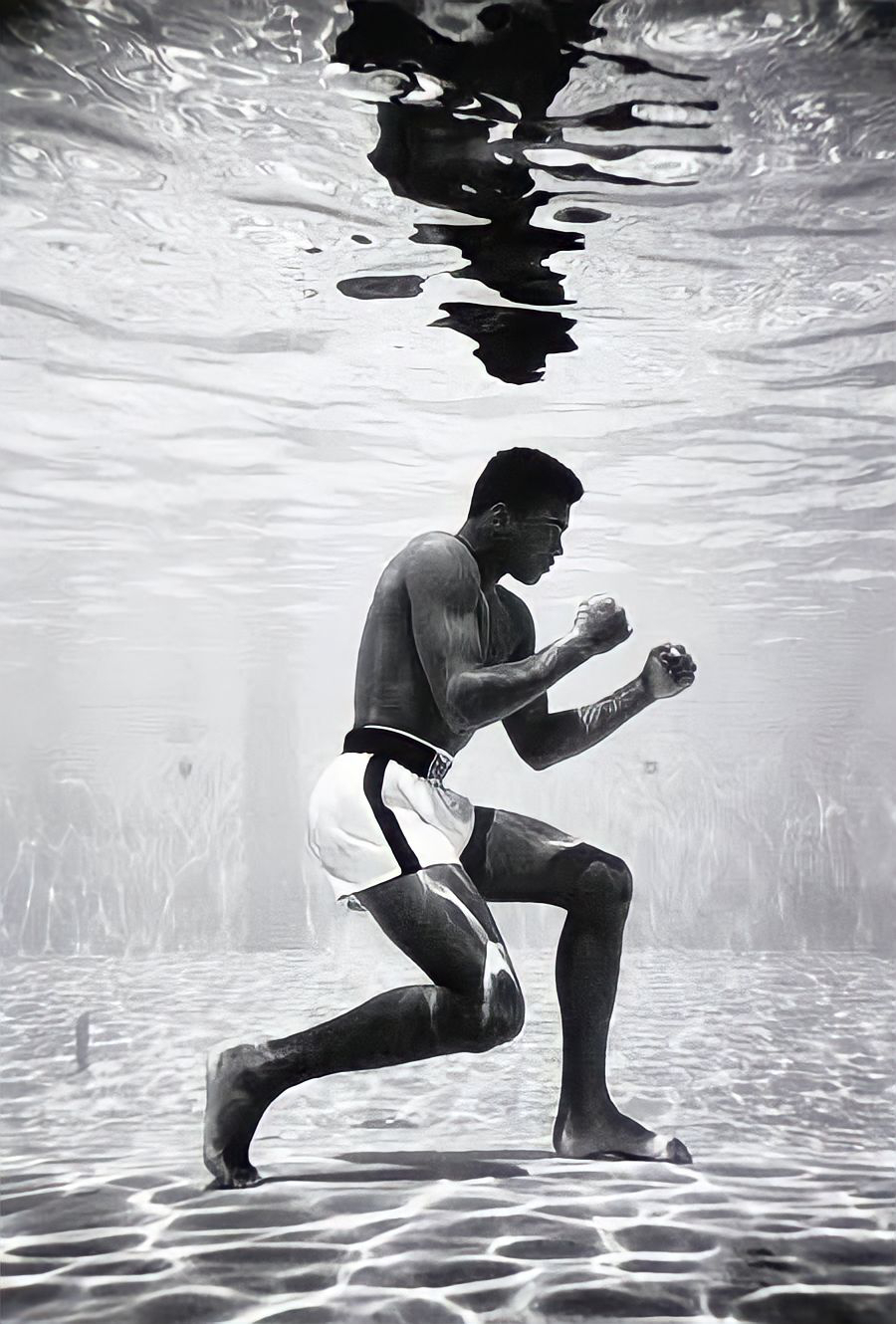Muhammad Ali, born Cassius Marcellus Clay Jr., was an iconic figure in the world of boxing and an inspiring symbol of determination and resilience. His life story, from his humble beginnings in Louisville, Kentucky, to becoming one of the greatest athletes in history, is an extraordinary tale of passion, courage, and social impact. This article explores Ali's remarkable journey, shedding light on his childhood, his accomplishments, and the profound influence he had on both sports and society.
Muhammad Ali was born on January 17, 1942, in Louisville, Kentucky, into a working-class African-American family. His father, Cassius Marcellus Clay Sr., was a sign painter, and his mother, Odessa O'Grady Clay, worked as a household domestic. Growing up in a racially segregated society, young Cassius experienced firsthand the harsh realities of discrimination and inequality.
Ali's journey into boxing began when he was just twelve years old. His encounter with a stolen bicycle led him to report the incident to a police officer who happened to be a boxing coach, Joe E. Martin. Recognizing Ali's potential, Martin encouraged him to channel his energy into boxing. Under the mentorship of Martin, Ali honed his skills and soon emerged as a rising star in the amateur boxing circuit.
Ali's remarkable talent and charismatic personality captured the attention of the boxing world. At the age of eighteen, he won a gold medal in the light heavyweight division at the 1960 Rome Olympics, setting the stage for his professional career. In 1964, he famously announced his conversion to Islam and changed his name to Muhammad Ali, citing his newfound faith as a source of strength and conviction.
Ali's boxing career was marked by numerous historic bouts that showcased his exceptional skill, agility, and unyielding determination. He became known for his lightning-fast footwork, powerful jabs, and a unique boxing style that combined grace with brute force. Notable fights include his battles against Sonny Liston, Joe Frazier, and George Foreman, where Ali's sheer resilience and strategic brilliance earned him the title of "The Greatest."
Beyond his athletic prowess, Ali's impact on society extended far beyond the boxing ring. He fearlessly spoke out against racial injustice, religious discrimination, and the Vietnam War, often sacrificing his own career and enduring public backlash. Ali's refusal to be drafted into the military during the Vietnam War, citing his religious beliefs and opposition to the war, resulted in the suspension of his boxing license and the stripping of his heavyweight title.
Ali's retirement from boxing in 1981 marked the end of an era. Despite facing health challenges, including Parkinson's disease, Ali remained an influential figure, using his platform to promote humanitarian causes and peace. He traveled extensively as a global ambassador, spreading his message of unity, compassion, and tolerance. Muhammad Ali passed away on June 3, 2016, leaving behind a legacy that transcends the realm of sports.
Muhammad Ali was married four times and had seven daughters and two sons. His wives included Sonji Roi, Belinda Boyd (later known as Khalilah Ali), Veronica Porsche, and Yolanda "Lonnie" Williams, whom he married in 1986 and remained with until his passing. His children, including Laila Ali, followed in his footsteps and achieved success in various fields.
Childhood and Early Life:
Muhammad Ali was born on January 17, 1942, in Louisville, Kentucky, into a working-class African-American family. His father, Cassius Marcellus Clay Sr., was a sign painter and a muralist who instilled in young Cassius the value of hard work and determination. His mother, Odessa O'Grady Clay, was a nurturing presence in his life, supporting his dreams and encouraging him to follow his passion.
Growing up in the racially segregated city of Louisville, Ali experienced the harsh realities of discrimination from an early age. He encountered racial slurs, witnessed acts of prejudice, and was restricted by the prevailing systemic racism. These early experiences fueled Ali's desire to prove himself and fight against injustice.
Ali's Journey into Boxing:
Ali's journey into boxing began when he was just twelve years old. His encounter with a stolen bicycle led him to report the incident to a police officer who happened to be a boxing coach, Joe E. Martin. Recognizing Ali's potential, Martin encouraged him to channel his energy into boxing. Under the mentorship of Martin, Ali honed his skills and developed a love for the sport.
As a young amateur boxer, Ali displayed remarkable talent and quickly rose through the ranks. He won several Golden Gloves titles and earned a spot on the U.S. boxing team for the 1960 Rome Olympics. At the Olympics, a nineteen-year-old Ali won the gold medal in the light heavyweight division, catapulting him into the international spotlight.
Rise to Prominence:
Ali's remarkable talent and charismatic personality captured the attention of the boxing world. After his Olympic triumph, he turned professional and embarked on a journey that would cement his status as one of the greatest boxers of all time.
In 1964, Ali challenged the reigning heavyweight champion, Sonny Liston, in a highly anticipated match. Despite being considered an underdog, Ali's unyielding confidence and superior boxing skills led him to a stunning victory, making him the new heavyweight champion of the world. It was after this victory that he publicly announced his conversion to Islam and changed his name to Muhammad Ali, reflecting his religious and cultural identity.
The Boxing Career:
Throughout his career, Ali engaged in numerous historic bouts that showcased his exceptional skill, agility, and unyielding determination. His boxing style was characterized by lightning-fast footwork, powerful jabs, and a unique combination of grace and brute force.
Some of Ali's most renowned fights include the three legendary bouts against Joe Frazier. The first fight, dubbed the "Fight of the Century," took place in 1971, where both fighters displayed incredible resilience and determination. Ali suffered his first professional defeat in this match, but their rivalry would continue to captivate the world with two more thrilling encounters.
Another monumental moment in Ali's career was the "Rumble in the Jungle" in 1974, where he faced George Foreman for the heavyweight title. Foreman was considered unbeatable, but Ali employed his iconic "rope-a-dope" strategy, leaning against the ropes and absorbing Foreman's powerful punches before launching a remarkable comeback that resulted in a stunning knockout victory. This fight solidified Ali's
Muhammad Ali's life is a testament to the power of perseverance, resilience, and the pursuit of justice. From his early days in Louisville, Kentucky,









No comments:
Post a Comment